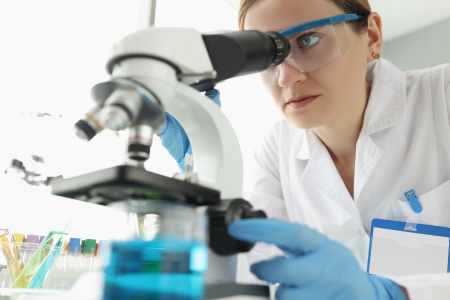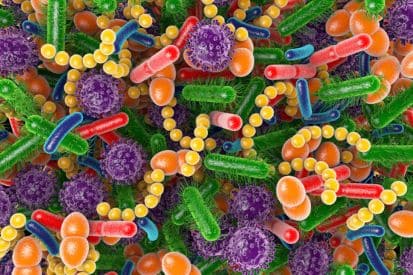Understanding the gut microbiome
Your gut is home to trillions of bacteria and the kinds of bacteria a person has in their gut are different for everyone—even identical twins. This collection of bacteria in the gut is called the gut microbiome and it plays a very important role in keeping you healthy, from regulating your immune system to helping digestion.
That being said, a gut microbiome test can help you learn more about the functions of your gut microbiome and also find out if certain bacteria are affecting your health negatively.
What does a gut microbiome test involve?

Testing your gut microbiome typically involves taking a sample of your stool and analysing it to find out what kinds of bacteria live in your gut. This test can be done at home by collecting the stool samples in a sterile container and then sending them to a lab for testing.
At the lab, DNA will be extracted from the stool sample and sequenced. The DNA sequences will then reveal the types of bacteria that are currently present in your gut microbiome.
What are the benefits of this test?
Here are some of the benefits you can expect from gut microbiome testing:
Identifies health issues

Gut microbiome testing can help reveal potential bacteria imbalances in your gut, which have been linked to potential health issues, such as inflammatory bowel disease and allergies. By identifying these imbalances early, healthcare providers can help address health issues before they worsen.
Reveals treatment progress

By testing your gut microbiome, health providers can see if certain treatments are having the desired effect on your health. For example, if you’re taking probiotics to improve your gut health, gut microbiome testing can reveal if the probiotics have changed the composition of your gut microbiome.
Helps personalise treatments

By analysing a person’s unique gut microbiome, doctors can create personalised treatment plans for their patients. These treatments will consider the specific needs of the individual. For example, if a patient has an overgrowth of a certain type of bacteria, the doctor will prescribe antibiotics.
What are the health problems connected to imbalances in the gut microbiome?
The following are some health issues that may be connected to imbalances in your gut microbiome:
Obesity
Anxiety
Cardiovascular disease
Hypertension
FAQs
Eating a selection of fibre-rich foods, such as grain, fresh fruits and vegetables, and fermented foods, may help keep your gut microbiome healthy. However, these diets may not be suitable for everyone, so make sure to speak with a doctor beforehand.
This varies depending on the person. Some individuals may experience changes in their gut health after a few weeks, while others may experience changes after several months.
Yes, you can, but it may take time. Also, antibiotics may not work for everyone so avoid taking any without getting a proper diagnosis and prescription from a medical professional.
Consult a gastrointestinal specialist for intestinal parasite treatment in Sydney
Dr. Suhirdan Vivekanandarajah is a highly experienced gastrointestinal specialist based in Sydney, Australia. He’s trained in various areas of gastroenterology and has provided his patients with the best possible support and treatment for their medical needs for many years.
If you’re concerned about your gut health, book a consultation with Dr. Suhirdan today.
